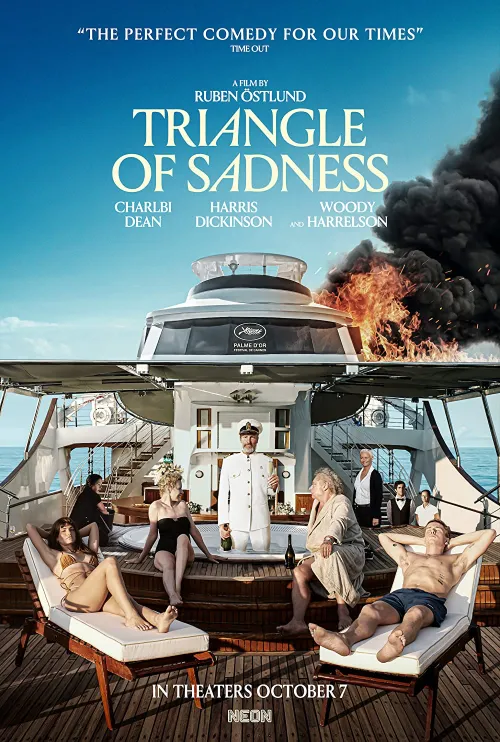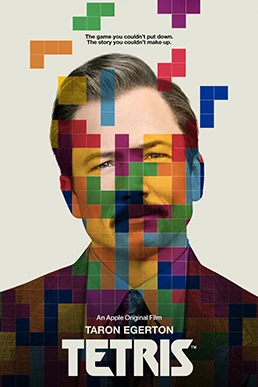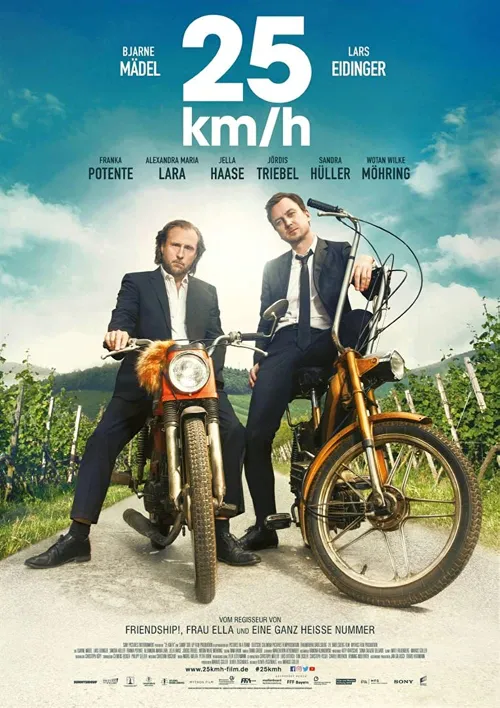— The Galactic Menagerie. It’s Star Wars, but from Wes Anderson. (via)
Posts from April 2023
— The German Film Festival brings … well … German films to Sydney, Canberra, Melbourne, and other cities around Australia this May; including some intriguing documentaries, like B-Movie about life in West Berlin in the 1980s and Merkel.
— Technology journalist Joanna Stern used generative AI to create an avatar of herself. She used it to trick Snap CEO Evan Spiegel into thinking it was her and to verify her identify to her bank over the phone.
— The big Dilla Time playlist is now complete. It is now a whopping ten hours long, containing over 150 songs, spanning all sorts of musical genres and eras.
— Datpiff, a central archive for historical and contemporary hip-hop mixtapes, is pivoting but will hand over its library to the Internet Archive. It’s nice that sometimes good things just don’t disappear from the Internet. (via)
— Updated satellite images on Google Maps show the destruction caused by Russian artillery in Ukraine.
— Five ground-breaking data visualisations, including John Snow, Florence Nightingale, and W.E.B DuBois.
— Ryan Broderick muses what kind of movies we’d get from am AI:
It will spit out perfect facsimiles of existing art that are all owned and maintained by a corporation and also totally worthless and interchangeable on an individual level.
This is a close description of many movies released today, obviously written and produced by humans. Just look at the never-ending rinse-and-repeat of sequels, prequels, and spin-offs of the Marvel universe or the Star Wars franchise. Or the trends that crop up once a type of movie is commercially successful, like all the whodunnits we’re seeing. They are all the same, all boring. If they were created using a generative AI then at least we all know, or should know, it’s bullshit.
— A former Kmart employee uploaded the background music that was played in the shops in the 80s and 90s to the Internet Archive.
Until around 1992, the cassettes were rotated monthly. Then, they were replaced weekly. Finally sometime around 1993, satellite programming was introduced which eliminated the need for these tapes altogether.
Can you imagine working at Kmart for eight hours a day and you have to listen to the same 90-minute tape on repeat for a whole month?
De La Soul on stage with a classic track, The Roots as the background band, Black Thought standing in for the late Trugoy and a wonderful tribute to Trugoy—this De La Soul performance is perfect and utterly moving.
Glorious Game

— Although not the norm, rap music recorded with a live band has a long history: Guru’s Jazzmatazz pioneered the genre, The Roots perfected it, and BadBadNotGood’s feature with Ghostface Killah is now a classic. Glorious Game by Black Thought, of Roots fame, and El Michels Affair, of Enter-the-37th-Chamber fame, fits neatly into that line. It brings together an incredibly talented band, many of who have a staggering track record, first and foremost as members of the Menahan Street Band, Daptone Record’s house band, and an MC at the height of his game. Glorious Game is a fantastic album, laid-back and smooth like an Old Fashioned on a Friday night.
— Willy Staley explores what Twitter is or was for the last 15 years, and how its social dynamics transformed a website with a text box into an influential marketing and communication tool.
— Nathan Dunne, at the Guardian, has cracked the secret of booming vinyl-record sales in the age of ubiquitous and cheap streaming services.
“Everyone at school is into records. You can roll a joint on the cover of Dark Side of the Moon – can’t do that with Spotify.”
The kids are alright.
Beats

— Beats feels like a visit to a good club somewhere in Europe: A old warehouse, a bit rough, a bit smelly, trenched in spilled booze from countless parties, and a pretty good time. There, a couple is making out in a corner.
(2019) Director: Brian Welsh. Screenplay: Kieran Hurley, Brian Welsh. Cast: Cristian Ortega, Lorn Macdonald, Laura Fraser, Brian Ferguson, Gemma McElhinney.
El Michels Affair & Black Thought – Glorious Game
— BuzzFeed News has shut because it’s not profitable. The news desk has published important, Pulitzer-decorated work in the past, but frankly, looking at the stories on their home page today, it’s not a huge loss.
— Flipboard now offers four curated feeds—as in curated by humans—on Mastodon from their News, Technology, Culture and Science desks. And because these feeds are on Mastodon, they are also available as RSS. I’ve subscribed to the technology and culture feeds.
— An exhibition showcasing the evolution of skateboard design is coming to London’s Design Museum in October.
This exhibition will map the design evolution of the skateboard from the 1950s to today. It will showcase innovative skateboards and components, alongside skate photography and video, complete with original soundtracks. It will track how skateboarders have taken over sidewalks, swimming pools and skate parks designing new boards to suit their performance, style and surroundings.
It’s when I discover events like this that I miss living in London the most.
— Journalists at The Washington Post have investigated Google’s C4 data set, which has been used to train AI models at Google and Facebook. Amongst the sites are very few surprises, a couple of odd choices—a World of Warcraft forum and sites that sell dumpsters—and, of course, personal blogs. A neat tool lets you search for domains to find out if a specific site, like yours, is part of the corpus. (via)
— Listening to lo-fi beats and air traffic control radio reminded me of Moon Sequence, an old hit from The Herbaliser:
Mushy Peas
— A colleague who lives in the US recently learned about mushy peas, a UK favourite side with fish and chips. He asked whether mushy peas are a thing. This is my reply.
Imagine it’s Friday, you had a tough week at work, and you decide to nip down to the chippy to treat yourself to a nice hot and greasy portion of fish and chips. You get haddock instead of cod because why not, you deserve it. The lad behind the counter, he grew up in the area and his family owned the chippy for at least four generations, he asks in the thickest cockney: “Mushy peas with that, bruv?” And without thinking for a second you say: “Yes, of course, mate, it’s Friday, innit, earned it.” You head home, the rain just stopped and now the sun is out. You walk with a spring in your step because you know what’s waiting for you when you get home; the fish and chips in one hand, the grease slowly seeping through the paper, and the tub of mushy peas in the other hand. An older gentleman tips his hat, a woman hands you her phone number, and the rude boy on the corner says: “Alright there, you have a good one, yeah”—because they know there walks a man of great taste.
— The University Library in Basel digitised a 775-page, 1860s type specimen catalog from the Haas Type Foundry—a long time before Helvetica. (via)
— Reasons to love the Internet: Lo-fi hip-hop instrumentals mixed with live air traffic control radio. (via)

— Several copies of Make Something Wonderful, the collection of Steve Jobs quotes, are for sale eBay. I’m not surprised that some copies show up on eBay, but I am surprised how many there are. There are at least a hundred for sale, priced up to 3,000 USD. If you got your hands on this limited edition, which are not sold publicly, then you’re probably not the janitor at Apple Park and you don’t need the money. People must have put their copies on eBay within hours of receiving them without even opening the book.
— 33 1/3—I mentioned the series of books about seminal albums of music history when I linked to a recent addition to the series about Madvillainy—also have a series of podcasts accompanying the books. Like the books, each episode is about one album and features high-profile guests such as Peanut Butter Wolf, the RZA, De La Soul’s Posdnuos, and Prince Paul.
— Patrick Bateman would be very jealous of these artist’s visiting cards.
Triangle of Sadness

— The Triangle of Sadness one of the movies that are incredibly good but don’t get much public recognition. I had never heard of it before a friend suggested it to me.
It’s set on a cruise for the very rich and the very detached from the real world. Being used to everyone dancing to their tune, their world is turned upside down when a storm hits during a captain’s dinner. The dinner ends with the drunk captain’s recital of socialist philosophy through the ship’s intercom and a seemingly never-ending barrage of guests throwing up that could well have originated from the Family Guy writers room. Funnily, now the crew is in control, both of their bodies and the situation.
The film paints a comic picture of rich people that do very little for the world beyond taking shots for Instagram or producing grenades, but who are useless without the help of underpaid servants around them.
(2022) Director/Screenplay: Ruben Östlund. Cast: Charlbi Dean Kriek, Harris Dickinson, Dolly De Leon, Woody Harrelson.
— True Detective’s season 2 and 3 were disappointing. But after seeing the new trailer, I am looking forward to season 4. It’s set during a long winter in Alaska and looks to be as dark as True Detective’s brilliant first season.
— Make Something Wonderful is a new book published by the Steve Jobs Archive that includes words by Steve Jobs on a great variety of topics. The Steve Jobs Archive has an agenda, and the book is obviously curated and edited to paint a certain picture of Jobs. This isn’t a biography that aims to explore the complex person Jobs was. But to truly understand a person you have to listen to their own words. So that’s what this book is: long quotes by Steve Jobs from speeches, notes and correspondence. For most people the book is only available digitally. But it’s free and comes in different formats: Apple Books, epub and as a website. Go read it on the website—it’s great.
— The city grid is falling out of favour. It’s the most efficient city-planning form for walkability, motorised traffic, public-transport. But gridded street layouts also make boring cities. You rarely find a small park or nice cafe tucked away somewhere, or roads the are pleasant to walk on because they are mostly free from traffic.
Mastodon Is a Lot Like Twitter
— This post on Mastodon concerning the 15-minute city demonstrates what I’ve been saying all along: When you purely look at how people argue, Mastodon isn’t any different than Twitter.
Here’s the post:
“My hot take on ‘15 minute cities’ is if you can get to the coffee shop within fifteen minutes, but the barrista who makes your drink can’t afford to live closer than a half-hour away, then you live in a theme park.” - Gareth Klieber #cities #urbanism #housing #transit #cycling
The take is not wrong. But it condenses one opinion about a hot-button topic to 278 characters. It’s pointed and missing nuance, which makes it more provocative aiming to receive more interaction, comments and shares. And it worked; it landed on Kottke’s blog, which has tens of thousands of readers.
Mickey Mouse and Goofy won’t be parading down the street at noon if the staff in a coffee shop have to travel more than fifteen minutes to work. The idea of the 15-minute city—to have all important amenities, including work, available within a short walk from your home—that ideal just isn’t fulfilled in the scenario. Although closer to the truth, phrasing it this way sounds rather boring. So many important questions are not asked: Is the ideal 15-minute city even attainable? What needs to happen to change our current cities? What role does public transport play? Would the car-manufacturing lobby play along?
And the replies: Pseudo-philosophic ramblings about privilege. Someone has to point out a small typo, to which the original author obviously needs to reply. Another person says “working class,” and the discussion only spirals around that for a while. Only a few comments dissect the issue with the original statement.
Is that any different from Twitter? Is that the nirvana of civility that the loudest advocates of Mastodon promised a couple of months ago? We’re past the honeymoon period now with Mastodon. A lot of people have joined the platform, and more conversations involve more participants. And the people that were the loudest on Twitter become the loudest on Mastodon: People with a puffed-out sense of mission, confidence and extroversion. None of this is worth moderating; there’s no bullying, nothing illegal or offensive in this conversation. But there’s no exchange of ideas, no listening—it’s people talking at each other instead of with each other.
It’s what drove me away from Twitter three years ago and what drove me away from Facebook before that. The underlying protocols and technology can change, but it will always be humans arguing on the Internet—it won’t ever change.
— The Verge’s Nilay Patel interviews Eugen Rochko, creator of Mastodon, the platform, and CEO of Mastodon, the company; covering a wide range of topics from the growth of Mastondon and its effects on the platform, open source governance structures, decentralised social-media protocols and, of course, content moderation.
I don’t know whether it’s me getting older or the Internet getting older— but things feel significantly less silly now. Everything is very produced, yet sterile. Everything only exists if it can make money. If it can’t, it either doesn’t get made or dies off.
There was a magical time where it seemed everyone thought this was all experimental. Things were made because they were fun to make. That experimental nature gave us all permission to be weird.
Somewhat related to a recent post on this website.
— Pixel Envy redesigns. Pixel Envy’s design hasn’t changed dramatically since 2013. I liked the old site, it still smelled like the good-old days of blogging. The new design is a little too modern and I’m not a fan of the three-column layout that puts headlines alongside the posts. But that’s just me, I’ll get used to it.
— Kino Palace Cinema is showing selected Melbourne shorts from this year’s Flickerfest, a short-film festival in Sydney. This should be good if the festival trailer is any indication.
— Twitter cuts off embeds on Substack. But the Web still works though, no? You can still quote the tweet and link to it—at least for a couple more months until Twitter is completely walled off. I’m not defending Twitter’s decision. One formerly VC-backed corp is pitted against another VC-backed corp, each working tirelessly towards locking users into their platform. One just went a tiny bit further and everybody’s fuming. Oh my gawd, I can’t believe they’re doing this. Of course, they are doing this.
Tetris

— A dutch video game developer, a greedy media mogul from England, the Soviet KGB, and the inventor of Tetris all get entangled in a wild story of politics, backstabbing, and contract breaching to secure the distribution rights of the game. I enjoyed this a lot more than I expected; it’s an entertaining film with a dense plot, fun and gripping.
The depiction of a country behind the iron curtain, here it’s the Soviet Union, follows a familiar pattern: Filmed using a filter that taints everything in a cold, blue hue, the landscape devoid of any colour, and there are never any trees. Here’s a surprising fact for American film makers from Southern California: We did have summers before 1989 and sunshine, lush green landscapes, even trees in cities.
(2023) Director: Jon S. Baird. Screenplay: Noah Pink Cast: Taron Egerton, Nikita Efremov, Sofia Lebedeva, Anthony Boyle, Toby Jones.
RSS is not a notification system. It’s a distribution system. Distribution of content. I don’t want a notification. I want to read your content. Which is why I subscribed to your RSS feed in the first place. So stop with this nonsense of only serving an excerpt in your RSS feed.
Blogging Versus Content Creation
— Jonathan Crowe of The Map Room blog reflects on 20 years of blogging:
What faded away, I think, was the idea of, and self-identification as, a blogger. Lots of people started blogs in the format’s early years but didn’t keep up with them; social media was a better fit for what they wanted to do. Not many people start a blog qua blog to be a blogger nowadays.
Blogging never disappeared. People still post writing and photos and videos, and they share a window into their lives and thinking. But the gestalt of blogging is different today—on social media—and people now identify content creators. And with the changing self perception, the motivation for publishing stuff online has changed. On a weblog twenty, even ten, years ago, you would share for the sake of sharing, for the sake of documenting, or for the sake of learning:
The idea that someone with an intense interest in a subject but not much knowledge could start a blog as a way to explore the subject—“an exercise in self-education” is what I called it—was something that made sense in 2003. It might be a bit more archaic now
Bloggers publish for themselves first, and the content may or may not be valuable to others. Today, content creators publish to go viral or to build influence and a career.
The form and motivation of online publishing has changed, and so has the content. Online content is shorter now because of platform limitations, but shorter content is also more digestible and easier to share and therefore more likely to go viral. You need to work through a 1,000 word blog post commenting on the current state of the Internet before you share it, and you might not agree with all the arguments, so you might not share it at all. That’s different with a cute photo or a Tweet that reduces a complex topic to a 280-character zinger.
— Every online platform will be enshittified eventually. Here we have Feedly introducing an AI model to track protests and strike action. (via)
— Mozilla froze part of Firefox’ user-agent string because some websites wrongly identify the browser as Internet Explorer 11.
— Marshall McLuhan predicts ChatGPT in 1966:
McLuhan described a future where individuals could call on the telephone, detail their interests and qualifications, and receive a package of information curated just for them.
(via)
With ChatGPT, the Bullshit Comes Full Circle
— I bought a house. At the end of the dance to negotiate pricing, settlement dates and whatnot, the estate agent sends you several emails and follow-up text messages, asking for a review.
Few online reviews for anything are honest, most are insincere or fake, and everybody knows they’re bullshit. The agent knows it, you know it, and the person fleetingly skimming over the review knows it. The review usually comprises of a few warm but ultimately meaningless words because, let’s face it, at this point, you’re just happy it’s all over and you want to be left alone.
Writing the review is a nuisance. But thanks to the wonderful world of generative AI, we can now offload this and other annoying tasks to a machine. And so I went and asked ChatGPT to write the review for me; I copied it and pasted it into the text box. Two minutes and I was done done. Everybody wins. The estate agent gets their review, and I didn’t waste any time.
In a way, a machine-generated review is more honest. The words were meaningless before, and now they’re also hollow. Before you had to sit down and put some effort into the review, on a good day you would even personalise your writing. Now you don’t have to put in a single thought. Just as the review itself, its production has become meaningless.
It’s all bullshit end to end.
— Researchers from the Sorbonne and New York Universities discovered a lost manuscript of Ptolemy describing the design and the use of the Meteoroscope:
Ptolemy’s Meteoroscope was a tool to calculate heights and distances, often in relation to celestial bodies. It is referenced in several ancient texts, including Ptolemy’s own book on mapmaking, the Geography. However, details of its structure and operation were lacking, until now.
[…]
You could then use it for numerous applications such as determining your latitude in degrees from the equator, the exact date of a solstice or equinox, or the apparent location of a planet in the zodiac.

This map shows the outlines of atlases created on Field Papers. Mundane data made to look like art. (via)
25km/h

— After their father’s death, two estranged brothers reconnect whilst getting drunk in their childhood home. In between old memorabilia, they come across a plan they forged as teenagers: To travel across the country on their mopeds from the Black Forest in the south to the Baltic Sea in the north. Still intoxicated, they put the plan into action.
For many Germans growing up in the province, their moped is the segway to teenage independence. And so is planning a ridiculously long trip on a two-wheel vehicle that can’t go faster than 25 kilometres per hour. 25km/h depicts this and other nuggets of German life beautifully. Scores of beautiful nature, a wine fest, eating Sauerbraten, a feast at a Greek restaurant that every 17-year-old dreams of before they venture out and taste actually good food, and the petty-minded world of permanent camping—it’s all so German, it’s no surprise why so many Germans have ambivalent feelings about the country. And yet, it’s all lovingly staged in 25km/h that it left me thinking whether I should book a flight home to spend the summer there.
(2018) Director: Markus Goller. Screenplay: Oliver Ziegenbalg. Cast: Lars Eidinger, Bjarne Mädel, Franka Potente, Sandra Hüller, Wotan Wilke Möhring.